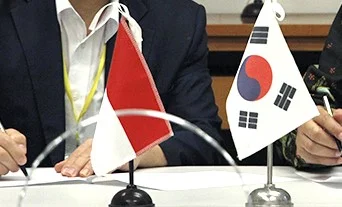Riding the crest of a wave: Sri Lanka reaches an all-time FDI high
/Over the past year, I've had the privilege of working with the World Bank in Colombo, Sri Lanka. The piece which follows sets out the island nation's bright FDI prospects, and some highlights of the work my World Bank colleagues and I have been doing in the country to support their economic development goals.
Sri Lanka is ‘back in the game’ when it comes to FDI. After two successive years of decline in FDI inflows into the country, Sri Lanka attracted US$1.63bn in FDI in 2017 – an all-time high for the island nation. Much of this investment went into the country’s large-scale infrastructure projects. However, investments also increased substantially in Sri Lanka’s export-oriented manufacturing industries, as well as key service sectors such as ICT and tourism.
Building and converting a greater pipeline of FDI in these manufacturing and services industries will be important for Sri Lanka in the coming years as the country seeks to bolster its exports, create sustainable jobs, and enhance technological capabilities and skillsets. While investments in large-scale infrastructure projects clearly provide a crucial boost to any economy, the jobs and capital inflows they bring tend to have a limited lifespan and so their share in the FDI mix should always be looked at carefully, to avoid an over-dependence on one type of investment.
Source: BOI Sri Lanka. Logistics is one the country's priority target sectors for investment promotion.
For this reason, the Investment Policy and Promotion team at the World Bank Group has been working closely with the Board of Investment (BOI) on the identification and prioritisation of core sectors for investment promotion, as well as assisting the development of BOI’s Corporate Plan 2017-2020, which outlines the organisation’s strategic approach to attracting investments in those core sectors (IT-enabled services, high value-added apparel, food processing, tourism and logistics). The four-year plan covers priority geographic markets for investment attraction, year-on-year targets and KPIs, as well as a series of plans and initiatives to ensure the BOI is best placed to compete for FDI – both in terms of its own set-up and the partnerships it will build and strengthen with stakeholders in Sri Lanka and abroad.
One of the core priorities in the Corporate Plan is to ensure BOI’s Investment Promotion function is adequately resourced in terms of financing, staffing levels and skillsets. To support this objective, the World Bank Group developed a competitive Investment Promotion Certification Program (IPCP) for a select number of BOI’s staff. The program was designed to build a cohort of world-class FDI professionals equipped with the knowledge and skills to become effective investment promoters and facilitators, giving BOI an in-house talent pool to draw on as it expands its investment promotion functions. The pilot IPCP trained a shortlisted group of 42 officers from across BOI’s divisions, and across the island, with all participants successfully completing the course – 70% of which passed with distinction.
Beyond enhancing staff knowledge and skills, the IPCP has generated a series of well-researched proposals for sector-focused investment promotion initiatives - the result of extensive, diligent group work throughout the four-month program.
The Investment Promotion Certification Program (IPCP), delivered by the World Bank for a select cohort of BOI officials, generated many well-researched ideas for initiatives to take Sri Lanka's FDI prospects to the next level.
Maintaining momentum
BOI has had a positive start to 2018: investment targets for 2017 were exceeded, and a newly-trained cohort of FDI professionals are now poised to support their organisation and their country in attracting quality investment projects. It is therefore crucial that the enthusiasm and momentum is not lost, and that the IPCP graduates put what they have learnt into practice.










